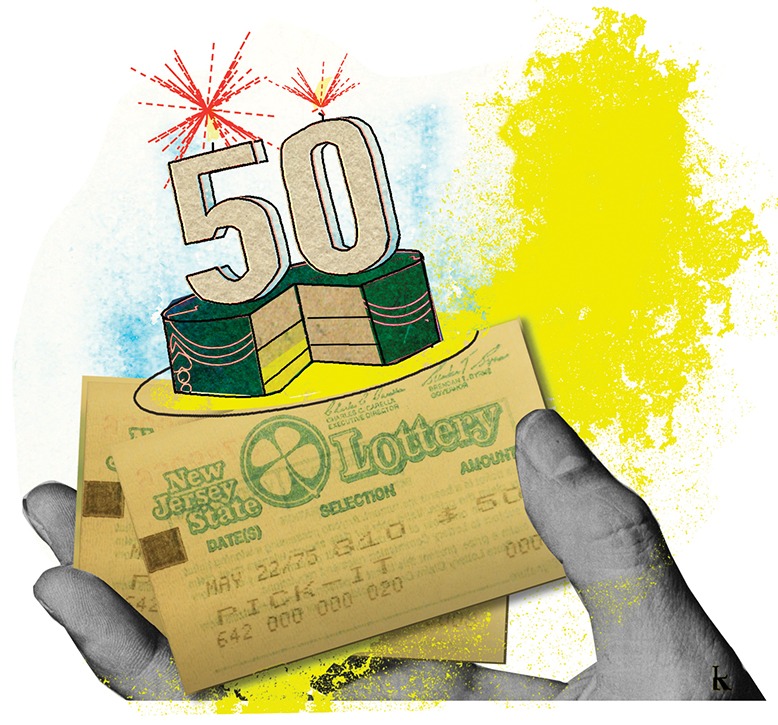
Illustration by Katy Lemay
As the weather heated up in June 1976, so did the action inside Joe’s, the variety store/news agency owned by my parents on the Black Horse Pike in Runnemede.
The arrival of a New Jersey lottery-ticket machine transformed the store. The impact was akin to opening a casino. Customers flocked to play Pick-It, a state-sanctioned version of the numbers game. My dad had negotiated with the state’s lottery commission for nearly a year to get the machine, correctly figuring it would attract people to the store and boost sales.
It was the end of my sophomore year at Rider College, and I was living at home and working part-time at the store. I had a front-row seat to watch the lottery’s impact on our customers.
Some customers were superstitious, playing a three-digit number that corresponded to their birthday, wedding anniversary, or another number relevant to their family history. If an incorrect number was punched out by the machine, some people still bought it, figuring it was bad luck not to.
Nick, a middle-aged salesman, played 706 faithfully, but was never satisfied with one 50-cent ticket. He would regularly spend $30, which required us to punch out 60 tickets.
Anthony, a local retiree, would study numerology publications with a scholar’s intent before making his selections. He also checked out the listings in a daily numerology column in the Philadelphia Daily News. Ruth, a grandmotherly type, also relied on numerology research before choosing her numbers.
After returning home, Anthony would continue to study the numbers and then call our store’s pay phone to make his wagers. My dad, a trusting soul, agreed to play the numbers and let Anthony pay on his next visit to the store.
[RELATED: A Fated Spin on My Dad’s Old Carousel]
Even my dad was not immune to the excitement. He regularly played 506, winning a few times when those digits were drawn.
The New Jersey State Lottery held its first drawing 50 years ago in January 1971. Pick-It, now called Pick-3, was introduced four years later and changed the lottery from a passive pursuit to an active one. With the original Weekly game, people bought tickets with preprinted numbers.With Pick-It, bettors could choose their own numbers, the size of their wagers and whether to play their numbers straight, in a box or in pairs.
Initially planned as a temporary game, Pick-It became a permanent part of the lottery landscape.
With sales of just over $410.5 million in fiscal 2019, “Pick-3 is our highest-selling draw game after Scratch-Offs,” says Missy Gillespie, communications manager for the lottery. The lottery as a whole generated $3.48 billion in sales in fiscal 2019, paid out more than $2 billion in prizes and $198 million in commissions, and contributed more than $1.10 billion in revenue for the state. The funds support the public-employee pension system. Over its 50-year history, the lottery has contributed more than $28 billion to the state.
At Joe’s, we had our share of winners. Since Pick-It was a pari-mutuel game, the amount they won was based on how many people played the winning number that day. Payoffs at Joe’s ranged from $150–$500 for anyone picking the straight winner.
By the summer of 1978, my parents had sold Joe’s, but my dad continued to play 506 until his death in 1989, confirming the wisdom of Alexander Hamilton, who in 1793 theorized why a lottery would succeed.
“Every body, almost, can and will be willing to hazard a trifling sum for the chance of a considerable gain.”
